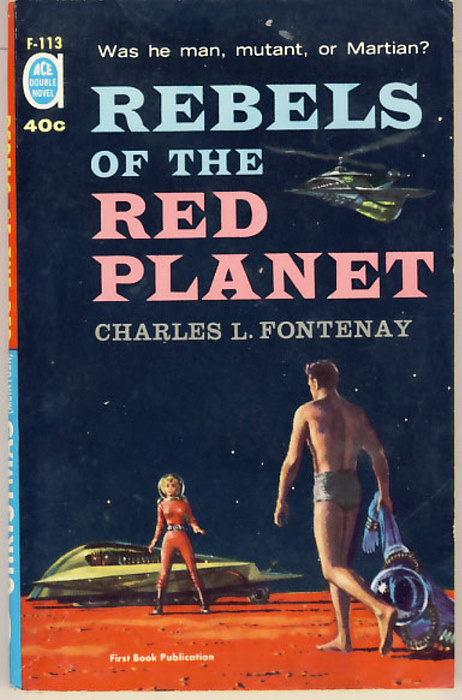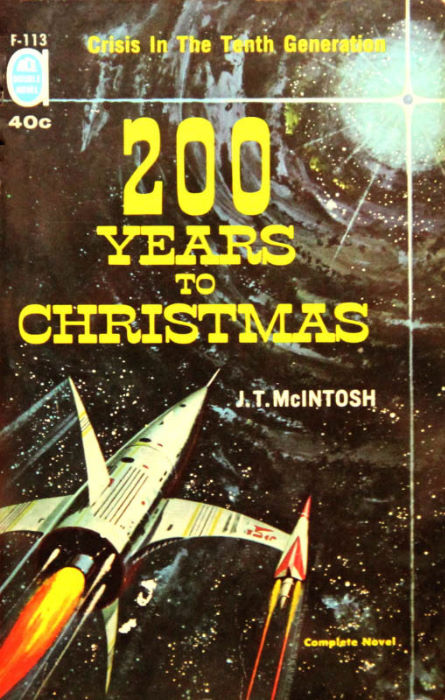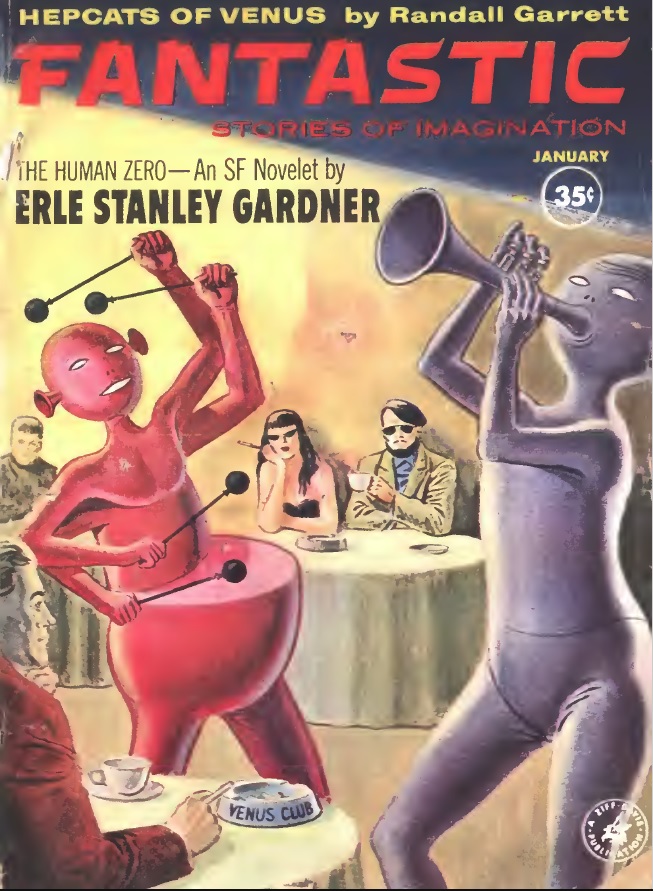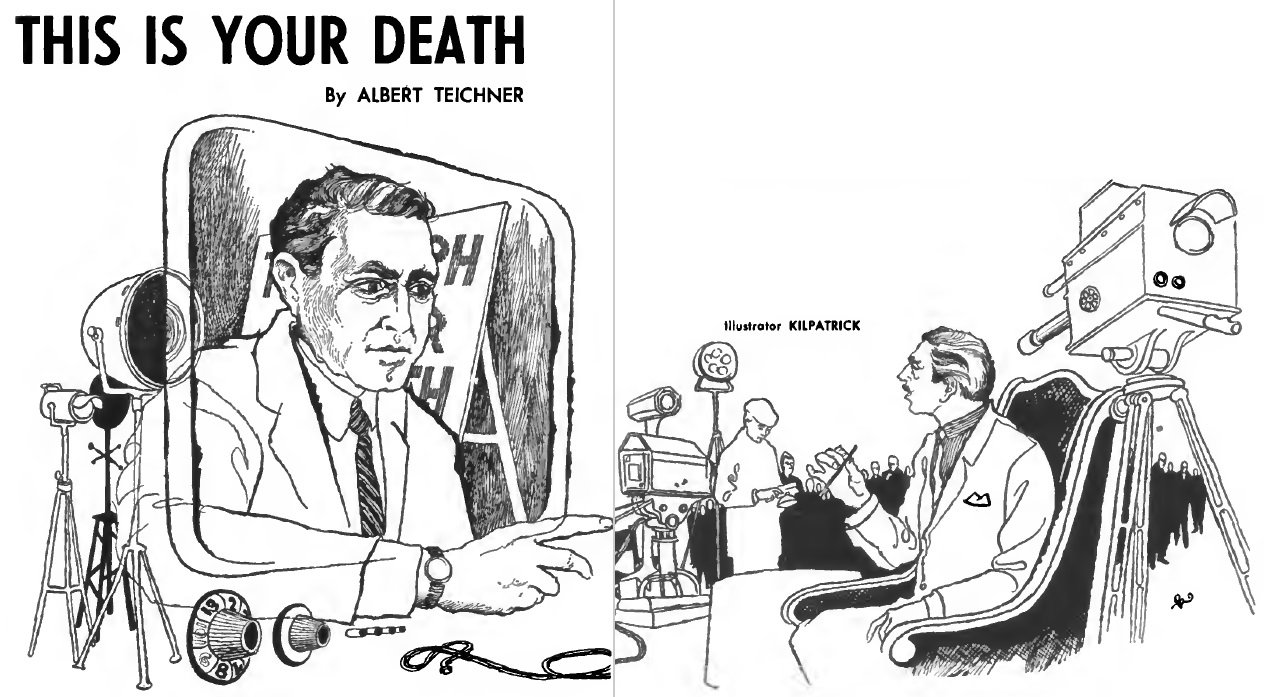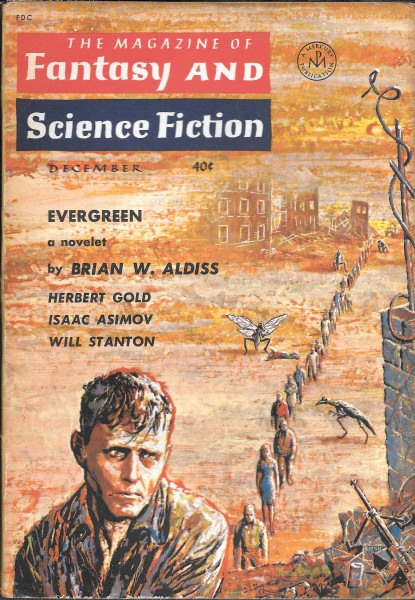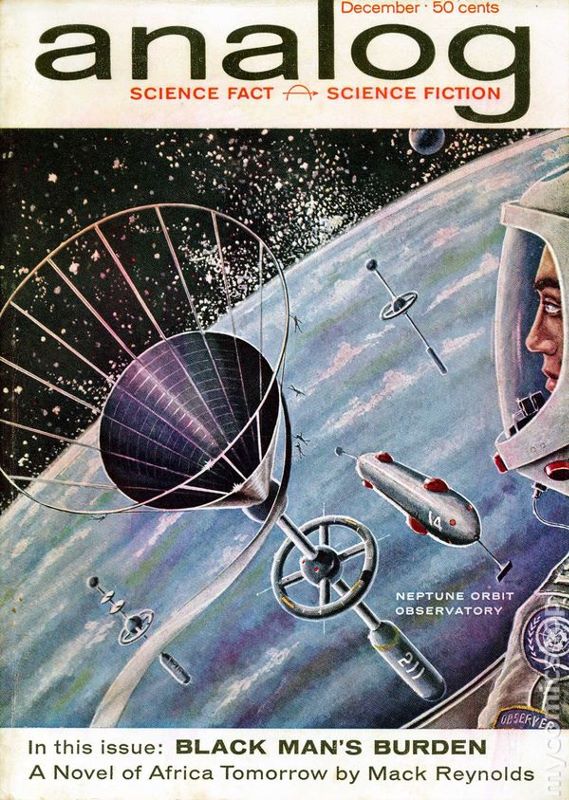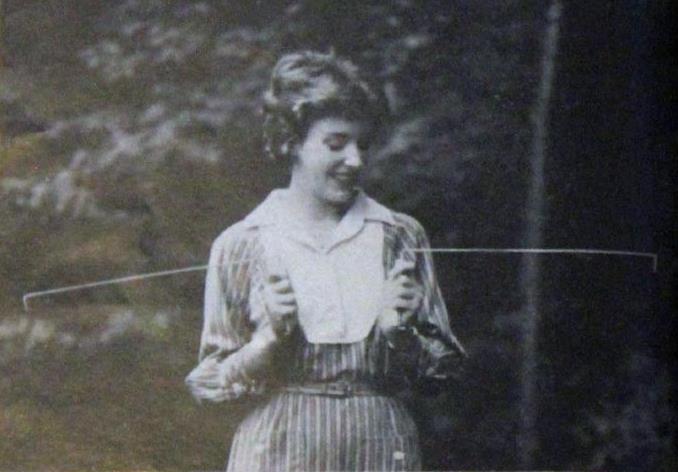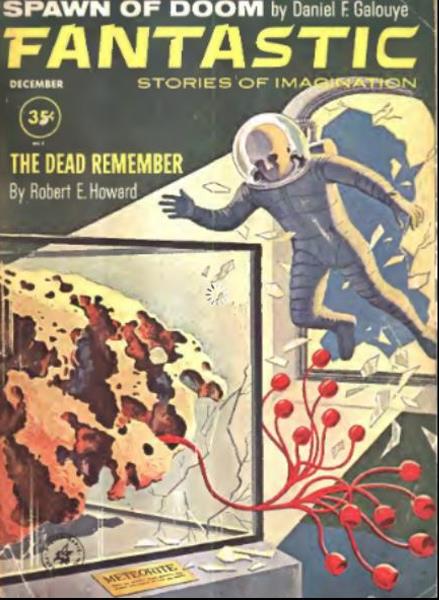[Several months ago, I put out the call for someone to help me review the two science fiction digests I didn't have time to read: Fantastic and Amazing, both edited by young Cele Goldsmith. I've generally considered them the least of the sff magazines, but given how few of them are left these days, I reasoned that they could not be entirely worthless. Moreover, I want Galactic Journey to provide as complete a picture of the genre as I can, covering virtually every story produced in this country (and many in the UK as well!) Hence, my delight when super-fan Victoria Silverwolf took up the pen and started reviewing Fantastic.
Now, a second long-time Journeyer, precocious John Boston, has also responded. As 1962 begins, we now have all of the big periodicals presented. Read on and see what's you've missed…]

by John Boston
As a a maladjusted high school freshman in a reactionary and pious small town, I'm always glad of the opportunity to get away, if only for a little while. Mostly, that means a flight of fancy facilitated by a trip to the library stacks or, if I've got a couple of bits, the newsstands. And now, the Journey affords me a chance to reach all of you, the fellow travelers who follow this column.
What I have for you today is the January 1962 Amazing Stories, subtitled Fact and Science Fiction. For some years, this magazine has been slowly digging itself out of a hole of purposeful mediocrity, with much improvement — but it's not quite at ground level yet.
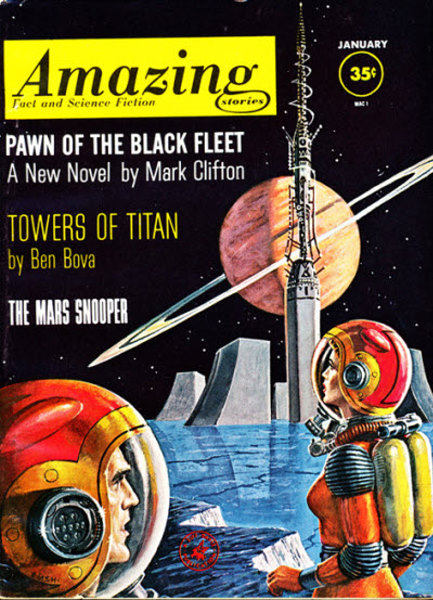
The headliner in this issue is Mark Clifton’s serial Pawn of the Black Fleet, to be discussed when it concludes next month. The issue actually leads off with a novelette, The Towers of Titan by relatively new author Ben Bova. On Titan, humans have found a number of towers full of extraterrestrial machinery, still running after a million years, operation and purpose incomprehensible. There’s a scientific puzzle, solved scientifically (at least enough to fool me). Of course, there is a bit of serendipity, and there's no question the solving process is beneficial to protagonist Dr. Lee’s romance with Elaine the resident archaeologist. This is a clever and well constructed piece of hard-science SF, written in a determinedly plain style with considerable facility, which is both good news and bad. It’s good when Bova is describing scientists discussing their findings and research methods, which otherwise could get pretty boring, but bad when he wallows in handy cliches.
Visiting the towers:
"He could feel it again—the alienness, the lurking presence of an intelligence that scorned the intruders from Earth."
After telling Elaine that his wife has left him:
"Do you still love her?" Elaine asked.
"I don’t know. I don’t think I know what love is, anymore. All I know is, on that long trip out to Vega, when I had nothing to do but sit and think, it wasn’t Ruth I was thinking about. It was you."
"Oh . . ."
And of course in the next paragraph, "she was his, at least for a while."
Actually, it all fits. This is only Bova’s second SF magazine appearance, but he has published the Winston juvenile The Star Conquerors, the flap copy of which reveals that he’s been a technical editor for Project Vanguard. He is also now a screenwriter for a scientific educational outfit. So he’s experienced at word-slinging with a premium on clarity as well as appealing to the least common denominator. He may have a bright future in hard-science SF if he can lose some of the schmaltz. Weighing cleverness and obvious enthusiasm against cliches, three stars.
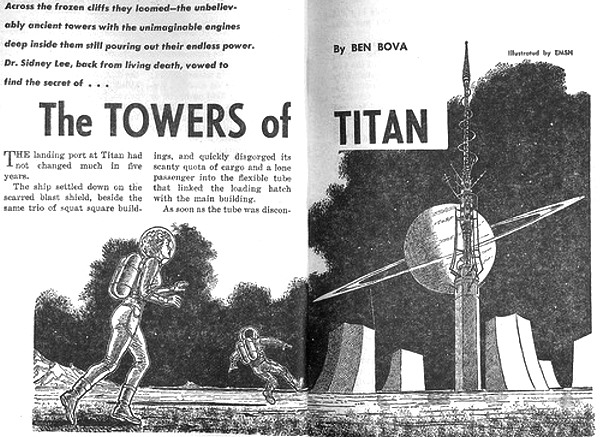
These Towers are depicted on the cover, by Ed Emshwiller, which typifies the current look of Amazing: colorful, sharp-edged, cartoony, and emphasizing hardware — in this case the characters’ space suits and helmets (Elaine’s spacesuit being rather tight-fitting). The previous year’s covers almost all prominently feature spaceship, space station, or launch facility. They are all a trifle crude, garish, and frankly unimaginative compared to most of their current competition. Compare, especially, this Emsh cover to his subtler, better-rendered and generally more interesting work for F&SF (say, his last three covers for 1961).
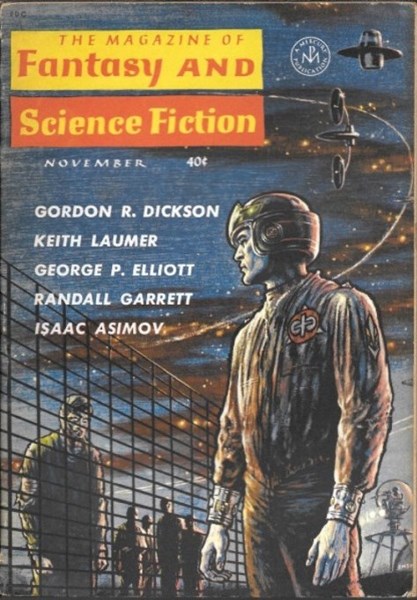
The most interesting fiction here is J.G. Ballard’s The Insane Ones. Ballard has been prolific and well received in the British SF magazines, but this is his first appearance in an American magazine; he is known here only via the Judith Merril annual anthologies and the short-lived US reprint of New Worlds. His work displays a preoccupation with psychological themes, and this is no exception: an ultraconservative world government has outlawed mental health treatment. Everybody has the right to be insane, but remains criminally responsible for conduct. The result: "psychotics loitering like stray dogs in the up-town parks, wise enough not to shop-lift or cause trouble, but a petty nuisance on the cafe terraces, knocking on hotel-rooms at all hours of the night."
Dr. Gregory, just released from prison for continuing to practice psychiatry, encounters a troubled young woman who kills herself when she can’t get any help from him. Then he finds a disturbed young man, Christian, rifling his suitcase for barbiturates to keep himself from trying to kill the leader of the government. Gregory yields and renders covert and cursory treatment—and Christian then sets off to kill the world leader, saying he is completely rational and someone has to do it. He drives off, with Gregory chasing after him, yelling "Christian, you’re insane!" This is not one of Ballard’s best: the idea is interesting but underdeveloped at this short length. But even in this minor and facile (that word again) story Ballard’s style is vivid and incisive and one hopes that he will now appear regularly in the US. Three and a half stars.
Miriam Allen de Ford’s SF career comprises some three dozen stories over the past decade or so, and yet is almost an afterthought. Her 50-year-plus career has emphasized mystery fiction and true crime, with a detour through Big Little Books, authoring such titles as Astronomy for Beginners and What Great Frenchwomen Learned About Love. In her spare time, she was an early disseminator of birth control information (when you could go to jail for it), and did some field work for Charles Fort.
If only de Ford’s writing were as fascinating as her life must have been. The Akkra Case is blurbed as "a criminologist’s lecture-report" and it reads like one. A young woman is found murdered in the rarely-entered Central Park in "Newyork I" in a diluted Brave New World-ish future: murder is nearly unknown, no one works until age 25 and then they can retire at 45, and a "healthy system of sexual experimentation" has replaced all the old hang-ups. But the murder victim was a virgin, and that’s the clue: she and family were involved with the Naturists, a subversive cult opposed to all modern practices including sexual freedom.
Yeah, but who killed her? Her younger sister cracks the case, and the solution turns out to be as uninteresting as the lead-up. En passant, the Naturists were rounded up, locked up, and then lobotomized, and it’s a measure of how detached the presentation is that one can’t really tell what de Ford thinks about that, or anything else in the story. Two stars, being generous.
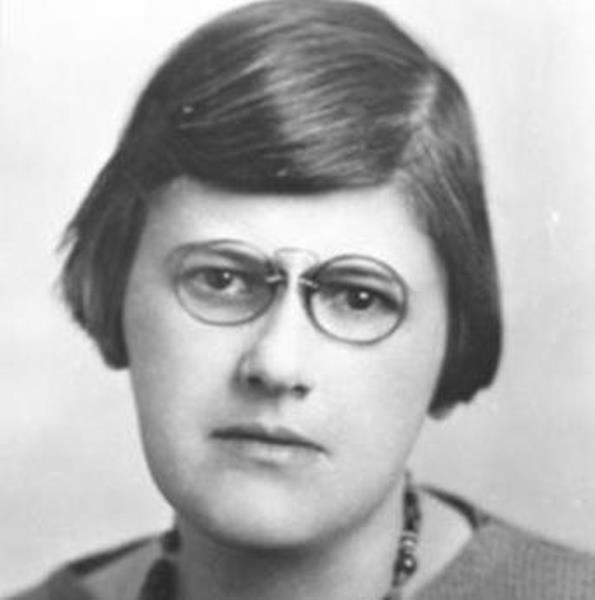
We are not done with de Ford. The Editorial consists mostly of the text of a speech by de Ford on SF criminology, in which she describes three of her other stories, which sound no more interesting than this one.
[ED: I have not read these stories, but I've generally found DeFord's work more engaging than Mr. Boston does. Perhaps these are bad examples…or perhaps I've encountered the good ones]
The Mars Snooper by Frank Tinsley, is a rather basic description of the engineering problems involved in getting a spaceship to Mars and back. It’s a piece of straight exposition and nothing more. Three stars.
Interestingly, this Tinsley, who has contributed several such pieces to Amazing, started out as an artist, providing cover and interior illustrations for pulp magazines, then art and text for a comic strip, then text and illustrations for articles in Mechanix Illustrated, and now in Amazing with text and a single illustration.
The remaining story is Inconstancy by Roger Dee (Roger D. Aycock), whose 50 stories in the SF mags since 1949 have had little discernible impact. This one certainly has none. Mars and Earth, their populations having common ancestry, exchange ambassadors, who are going to have to remain away from home for a couple of years. The Martian ambassador, selected to look Earth-ish, is introduced to a nice young woman, and the Earth ambassador, selected to look Martian, hits it off with the Mars ambassador’s wife. Problems solved! One star to this piece of filler.
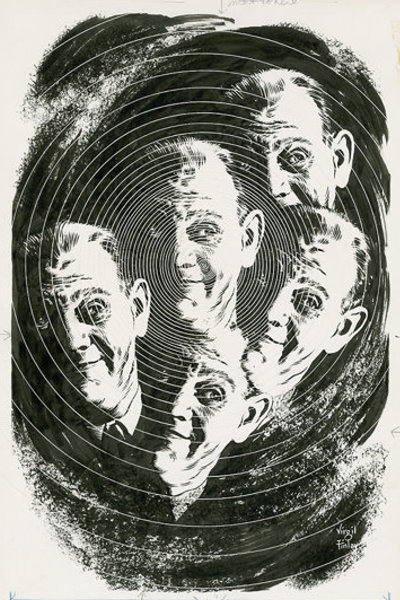
So: the fiction here, exclusive of the serial, yields an overall rating of a little under two and a half stars. The best one can say of this issue is that it shows promise: promise of more Ballard and better Bova.
[I'll take promise. It's more than Analog delivers much of the time!]



